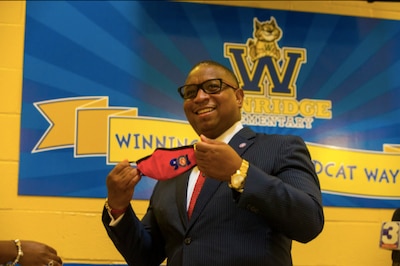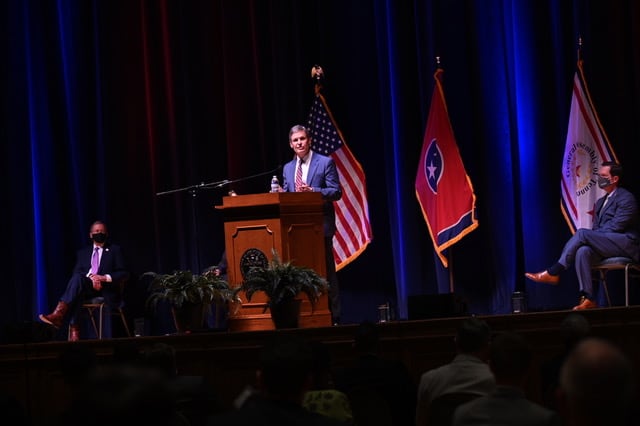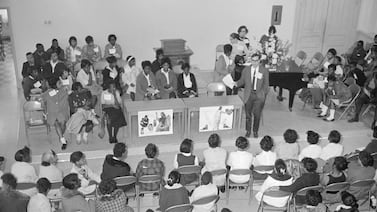In his strongest call yet to reopen school buildings, Gov. Bill Lee on Tuesday criticized education leaders in Memphis and Nashville for keeping their classrooms closed during the pandemic and depending on virtual learning “with no end in sight.”
A new bill introduced by a high-ranking legislative leader would require local districts to provide in-person instruction for at least 70 days this school year and the full 180 days next year, or risk losing all or part of their state funding. If it passes, Tennessee’s two largest school systems would have to reopen quickly to meet that threshold, even as cases of COVID-19 remain high.
A spokeswoman for the governor’s office said later that Lee does not have a position on the bill and will defer to the legislature’s judgment.
“The governor has been clear that students should be back in the classroom, but we will evaluate this bill as it moves through the legislative process,” said spokeswoman Laine Arnold.
In his brief address to the legislature to begin a special session on education, Lee said students who are learning remotely are learning less than they could, and that families deserve an in-person option.
“You can’t say ‘follow the science’ and keep schools closed. You can’t say ‘I believe in public education’ and keep schools closed,” he said. “And you can’t say you’re putting the needs of students first and keep schools closed.”
The Republican governor’s comments and funding proposal filed by House Majority Leader William Lamberth escalated the GOP’s feud with the leaders of Shelby County Schools and Metropolitan Nashville Public Schools. They also drew a quick response from statehouse Democrats and Superintendent Joris Ray, who insists that remote learning is the right decision for Memphis. Numerous other districts have extended their remote learning models because too many teachers are in quarantine.

Ray said state leaders should “step away from privileged podiums and try to understand the many concerns of our students, parents, and teachers.”
“In Memphis and Shelby County, and in other urban areas in America, nearly everyone knows someone who has been seriously ill or died from COVID-19,” he told school board members Tuesday evening. “It is disingenuous to think that the children of poor families need any less protection than children in other settings.”
In a joint statement from House and Senate Democrats, legislators said the “attacks” on Memphis and Nashville school leaders distract from school funding issues that the legislature is scheduled to address this week.
“We are disappointed in Gov. Lee’s confrontational tone toward school districts that chose virtual learning over in-person classes,” the statement said. “More than 8,000 Tennesseans have died from the coronavirus, including school faculty, and every district has had to make tough calls when balancing student learning with health and safety.”
Last summer, the state education department’s own guidance to reopen schools emphasized that those decisions rest with local leaders who should take into account community spread of the virus. Memphis and Nashville have led the state in cases of COVID-19, though some rural counties have had a higher percentage of their population get sick.
But Lee implied that leaders in those cities are “settling for the path of least resistance and hiding behind month after month of virtual learning with no end in sight.” The governor has consistently urged districts to provide an in-person option for families.
In Memphis, most parents of the 90,000 students in district-run schools have said they are not ready to send their children back to classrooms, according to a recent survey.
Correction: Jan. 21, 2021: A previous version of this story said Gov. Bill Lee backed the funding bill filed by House leadership. Lee’s spokeswoman said the governor has no position and will defer to the legislature on the proposal.








